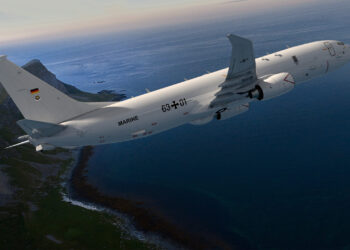US Navy,
GULFPORT, Miss: The Navy Expeditionary Combat Command (NECC) graduated 44 Sailors Nov. 2 from the Expeditionary Combat Skills Pilot course, developed and taught by the Center for Security Forces (CSF).
“The Expeditionary Combat Skills (ECS) Course provides a standardization of training across the NECC force, resulting in better trained warfighters who are ready for combatant commander's tasking,” said Rear. Adm. Don Bullard, commander, NECC. “ECS is the foundation of the expeditionary warfighters' training continuum.”
NECC, in collaboration with the Center for Security Forces, created ECS to provide initial, standardized, common core, basic individual combat skills to all personnel entering NECC units. The course provides warfighters with basic combat knowledge, skills and abilities namely, shoot, move, communicate and survive to succeed in the expeditionary environment and seamlessly and effectively integrate into the joint force.
The graduation ceremony held at the Naval Construction Battalion Center (NCBC) Gulfport, Miss., complex capped off a 26-day course that began Oct. 8 for these students. Currently 60 more students are taking part in the second phase of the ECS pilot. They will graduate mid-November.
“The ECS course was well received by the first class of Sailors, said Lt. Cmdr. Nick Petrillo, site director of the Center for Security Forces Learning Site Gulfport. “They received some excellent, practical training that will serve them well in their various assignments throughout the NECC.”
|
Click to Enlarge
Sailors learn the proper technique on the use of an M4 rifle as part of the Expeditionary Combat Skills course at the Navy Construction Battalion Center.
More Military Pictures
|
During ECS, students learned basic tactical and survival skills necessary to operate and survive in arduous, remote locations and combat environments. The course included instruction in operational risk management;, tactical combat casualty care, wear of individual combat equipment and chemical, biological and radiological gear, basic land navigation, basic radio communication procedures, field hygiene and sanitation; and instruction in counter-improved explosive devices.
In addition, students had to demonstrate proficiency with and qualify on the M16 rifle and M9 pistol, while also becoming familiar with crew-served weapons.
Students performed basic maneuvers while engaging targets; transitioning from one weapon type to another, executing vehicle emergency egress procedures and conducting live-fire exercises in a controlled environment.
As combat-related stress may pose possible concerns for expeditionary Sailors, CSF's curriculum included instruction about the psychological and physiological effects induced during deadly force or life-threatening confrontations. Through the course's Judgment-based Engagement Training (JET), Sailors learned ways to minimize the impact these effects have on their decision making process.
“The students gave high praise for the weapons training, combat casualty care and JET. JET involves the use of weapon simulators to conduct scenario-based training,” added Petrillo.
The pilot courses will validate the curriculum and course master schedule, identify conflicts, check logistic and course support processes, and prepare instructors and support personnel for the official course which begins in March.
“This is a fantastic achievement for CSF and the units under the Navy Expeditionary Combat Command,” said Capt. Mark Kohart, commanding officer of the Center for Security Forces. “By completing this milestone, we are in a better position to re-evaluate the course and make the necessary adjustments to improve the course.”










